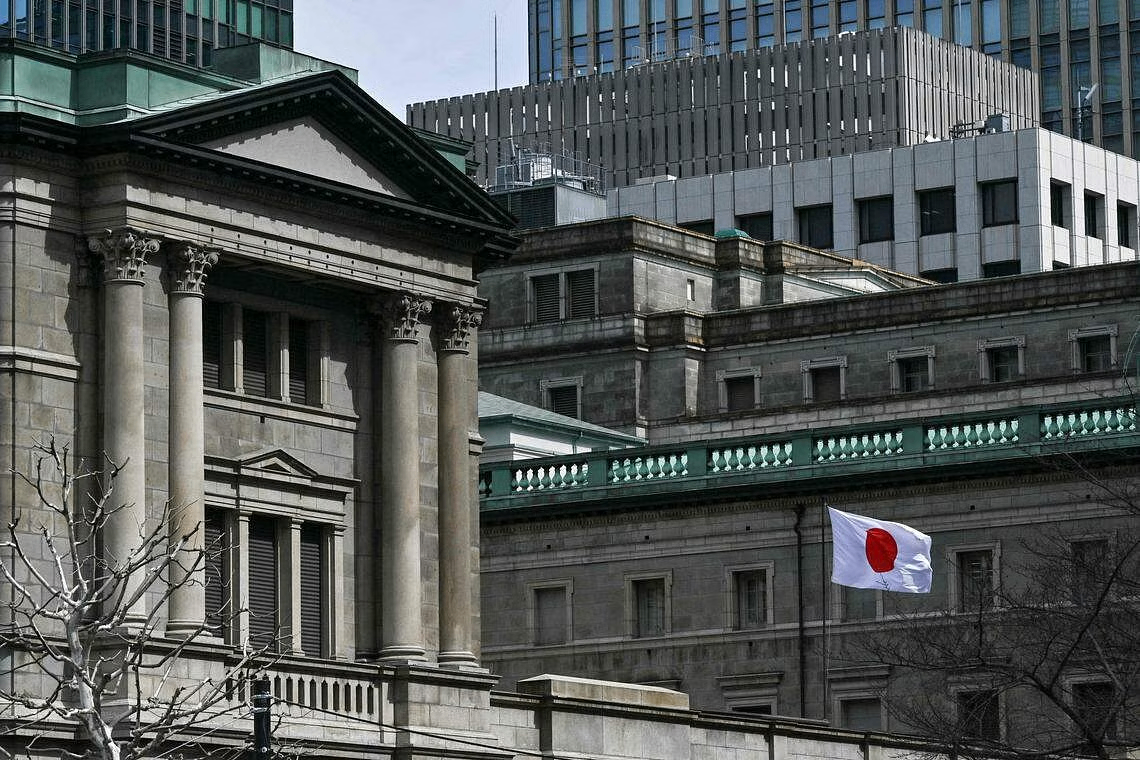Bank Of Japan Holds Interest Rates Steady, Yen Strengthens Slightly
On Thursday, the Bank of Japan left its short-term policy rate unchanged at 0.25%, in line with market expectations. After the Bank of Japan issued a statement, USD/JPY falling slightly, hovering around 153.
On Thursday, the Bank of Japan left its short-term policy rate unchanged at 0.25%, in line with market expectations. After the BOJ released its statement, the market reaction was relatively muted, with USD/JPY moving slightly lower, hovering around 153.
The BOJ argued that uncertainty about the Japanese economy and prices remains high. And said that, given the real interest rate at a very low level, if the economy, price trends in line with the Bank of Japan's forecasts, the Bank of Japan will continue to raise interest rates will be sustainable, stable to achieve the 2% inflation target from the perspective of the implementation of monetary policy.
For the next two years the inflation rate forecast, the Bank of Japan is expected to remain broadly around 2%. In particular, the median core CPI forecast for FY2024 is 2.5%, and the median core CPI forecast for both FY2025 and FY2026 is 1.9%.
Notably, in this statement, the BOJ emphasized the risks of foreign exchange. The central bank said, “The impact of foreign exchange volatility on prices has become greater as firms raise prices and wages more aggressively.”
At the same time, with the U.S. election approaching, the BOJ believes that “it is important to be vigilant about financial and foreign exchange market trends and their impact on the economy and prices” and “it is important to carefully study economic developments and market trends in the U.S. and overseas.”
Japan's political uncertainty increased also made the Bank of Japan become extra cautious.
On Monday, Prime Minister Shigeru Ishiba led the Liberal Democratic Party (LDP) suffered a crushing defeat, its ruling coalition with the Komeito party in the House of Representatives election only 465 seats in the 209, for the first time since 2009, less than half.
According to Japan's constitution, Ishiba must convene a special Diet within 30 days of the election, at which time the newly elected legislators will nominate the next prime minister. If Shigeru Ishiba fails to win the Special Diet election, his position as prime minister will be in jeopardy.
Uncertainty at the political level in Japan has put renewed pressure on the yen. On Tuesday, Finance Minister Katsunobu Kato just said that the yen has weakened sharply after Japan's election and that the government will be watching foreign exchange movements with a high degree of urgency.
“Domestic political turmoil is unfavorable to economic activity and may pose an obstacle to the Bank of Japan's interest rate hike plan.” Naomi Muguruma, chief bond strategist at Mitsubishi UFJ Morgan Stanley Securities, said, “But if the yen's decline accelerates and rekindles upside risks to inflation, the BOJ may not be able to wait long.”
At a news conference Thursday afternoon, BOJ Governor Kazuo Ueda said he would keep an eye on the upside risks to prices posed by a weaker yen and said the next rate hike is likely when there is more confidence in realizing the economic outlook.
Shoki Omori, chief strategist at Mizuho Securities in Tokyo, said that if the U.S. nonfarm payrolls data released on Friday is strong, there is still room for the dollar/yen to rise, and that the level of 155 “deserves the attention of investors and policy makers.”

·Original
Disclaimer: The views in this article are from the original Creator and do not represent the views or position of Hawk Insight. The content of the article is for reference, communication and learning only, and does not constitute investment advice. If it involves copyright issues, please contact us for deletion.